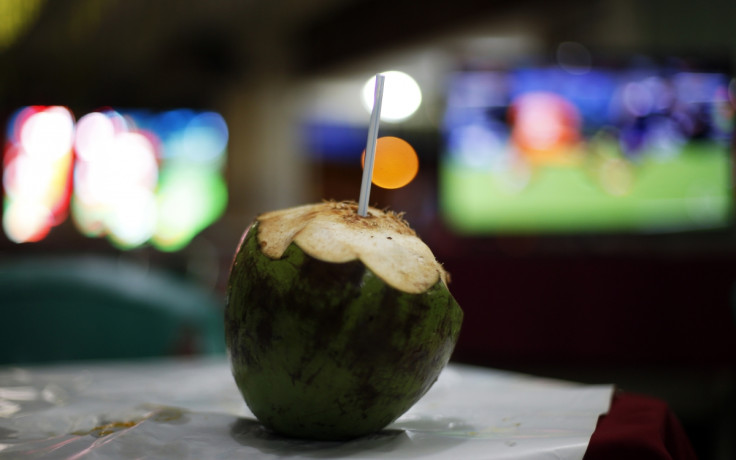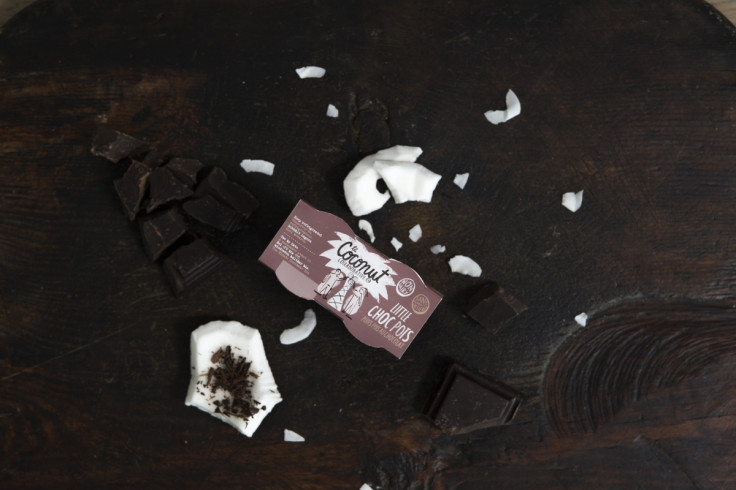Dairy's in decline - is coconut yoghurt the way forward?

Things have not been going well for supermarkets. Last year most of the major ones posted losses in the millions of pounds – but one section is bucking the trade: Free From. It was only a few years ago when the Free From aisle in most mainstream supermarkets was rarely restocked and generally offered little more than some gluten-free spaghetti and (you crossed your fingers) some kind of grain bar.
Now, the aisles are chocked full and sprouting up in other departments – my local Tesco has dairy-free cheeses and creams right next to the milk, the vegetarian meat substitutes is slowly pushing ready meals further down the fridge. In a related stat, the gluten-free market has been increasing 30.8% year on year.
The dairy industry in particular has taken a hit from consumers looking at products to fit changing lifestyles – dairy sales are declining all over the world and farmers are in turmoil over plummeting profits. But those sales aren't just disappearing, they're moving. The dairy-free market – think soya-milks and almond-creams – is now worth around £256m and is growing 26.7% year-on-year.
Joy of coconuts
One of the people happily watching this shift is James Averdieck, who started his latest company, the Coconut Collaborative, in 2014, and is expecting a turnover of £3.2m in 2016. Averdieck puts the shift down to people following products, not the other way around. When I ask him if he's been riding the wave, he replies "we hope we've been creating the wave".

"Coconut water was the start of the wave, we've taken it into yoghurt," Averdieck says, describing the path of coconut products' popularity as starting in the US and moving to London, "London is food Mecca, we've got pretty good supermarkets." It's not just people who are allergic any more, notes Averdieck, it's about a lifestyle choice.
You can see how lucrative the coconut water market is from the competitiveness. Where once your coconut water was ultra-healthy, you're now told that you must have raw coconut water, or it just is not healthy enough.
"The world is getting healthier," says Averdieck, more and more we're looking for products that we deem to be healthier alternatives to everyday foods, in the end "people vote with their wallets" – and they seem to be voting for the Coconut Collaborative.
Averdieck mentions the benefits of using coconut milk in their range of yoghurts, he says they contain "loads of nutrients and really good fats". They certainly taste good, you can give them that. Though experience has taught me to be wary of anything marketing itself as particularly healthy, coconut seems to be on the better side of that health divide – it contains a lot of saturated fats but many posit that it's a better saturated fat; one that raises your 'good' cholesterol.
The Coconut Collaborative mentions the saturated fats in their latest dessert offering – choc pots – and take the chance to throw a little dig at Averdieck's first company, Gü, which he sold for £32.5m in 2010 – according to the release, the new range contains "around half the saturated fat and calories of the Gü chocolate ganache mini pots alternative".

Possible health benefits aside, the Coconut Collaborative are taking care of the natural environment that they profit from. Where agricultural practices have destroyed huge patches of forest around the world and even led to claims that the UK's recent flooding could have been much less devastating if it were not for changes made to natural flood defences, it's good to see companies bigging up their eco-credentials. The Coconut Collaborative have launched a sustainability initiative with Pur Project that has already seen a thousand new trees planted. Those new trees will help regenerate soil, provide wildlife habitats and help create new income for local communities.
As for other health benefits: coconut milk is often fortified in a similar way to cows milk, Anna Daniels, dietician with Honest Nutrition, tells me, which means it will contain calcium – useful for those on dairy-free diets. Coconut water, on the other hand, is high in potassium – important for a number of biological functions in the body.
What makes the Coconut Collaborative better is that they only use coconut milk and coconut water in the production, unlike other branded coconut yoghurts that sometimes use mostly soya and then add a little bit of coconut for the flavour.
With the health benefits and the benefit of simply not being dairy, it's hard to see how coconut yoghurts and the Coconut Collaborative have anywhere to go but up. With the success for Averdieck's last company and now this coconut extravaganza, his eye for the desserts people want (or will soon be wanting) has yet to falter.
© Copyright IBTimes 2024. All rights reserved.






